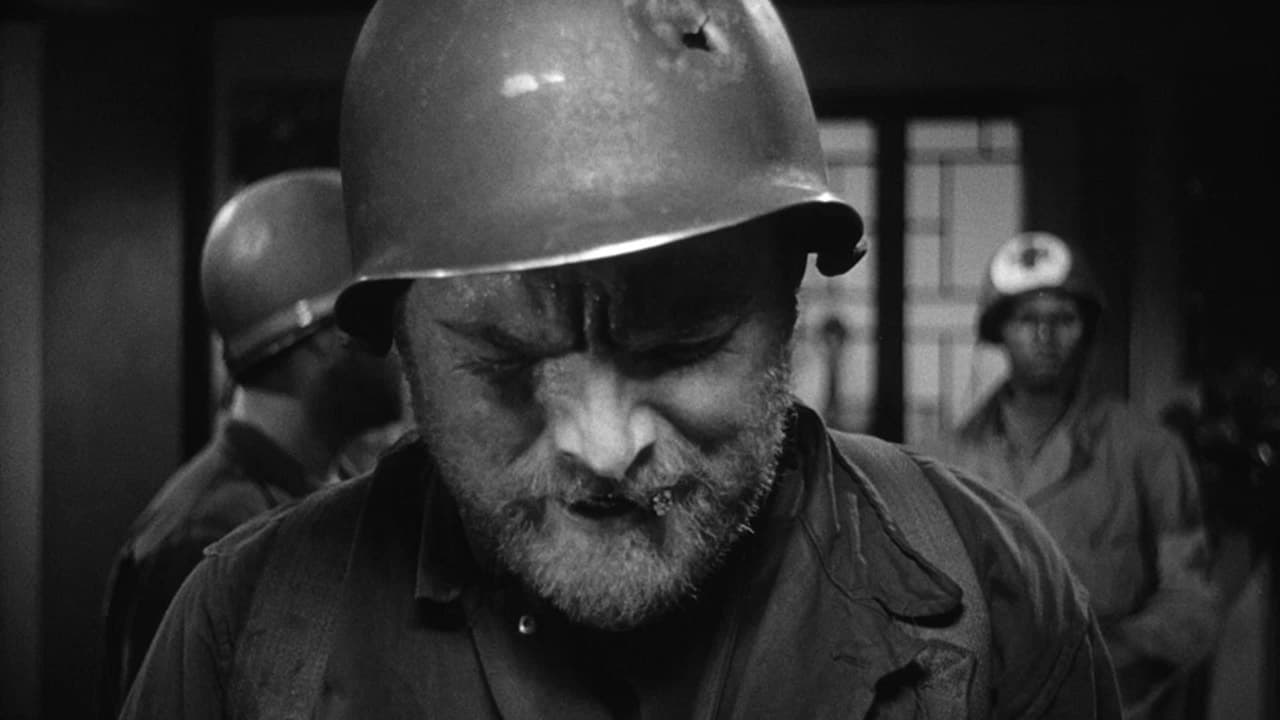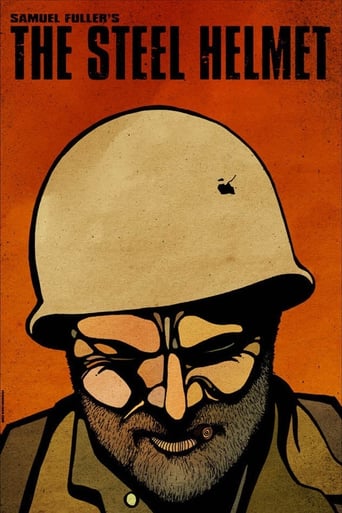

Overrated
... View MoreGood , But It Is Overrated By Some
... View MoreA Brilliant Conflict
... View MoreThe performances transcend the film's tropes, grounding it in characters that feel more complete than this subgenre often produces.
... View MoreAfter being captured, tied up and left for dead by North Korean invaders, an American army soldier by the name of "Sergeant Zack" (Gene Evans) is helped out of his bonds by a young South Korean boy nicknamed "Short Round" (William Chun) who proceeds to follow him on his way back to friendly territory. Along the way they come across other stragglers and together they continue on to a Buddhist temple in order to establish an observation post to monitor an advancing North Korean army. When they eventually reach their objective, their different personalities become more pronounced and threaten their unity even though they all realize that they need each other to accomplish the mission and to stay alive. Now rather than reveal any more I will just say that this low-budget film managed to overcome its limitations to a certain degree due to the underlying message it seeks to promote. Yet, even though the actors performed quite well, I thought that the script could have used significant improvement and the lack of resources clearly limited the overall quality and effect. I have rated the film accordingly. Average.
... View MoreAt first this seems like its going to be just another uber-manly war movie, but gradually it does indeed seem like vintage Fuller. An ethnically diverse platoon, including an African American doctor and a Japanese-American soldier, try to survive the Korean War. I imagine Oliver Stone studied this film, as much of it reminded me of the battle scenes in Platoon. Shot in just a few days on a tiny budget in Griffith Park, Fuller manages to create a singularly grim and brutal atmosphere very unlike Hollywood war movies of the era. The soldiers' conversations about life back home lead to discussions of race relations in the US that are far more blunt than one is used to hearing in most Hollywood movies of any era, much less a film from 1951. The still-recent Japanese internment camps are mentioned, and not in an apologetic tone. As one expects from a Fuller movie, its fervently anti-communist, but not nearly as hysterically so as Pickup On South Street. Indeed, the only North Korean character is an intelligent, committed warrior who asks questions that a communist would, indeed, pose to their American captors. When the North Korean asks the Black and Japanese characters why they fight for a country that oppresses them, they basically respond with "Cuz I'm an American!" Intentionally or not, the film makes the commie seem like the most inquiring mind.
... View MoreLess than 100 years after the American north and south fought their own civil war, a post-World War II smug America began to stick its nose in everywhere, allegedly fighting communism but pretty much claiming that they were out to protect world peace and prevent a third world war. Controversy concerning both the Korean and Vietnam wars have stirred up film makers in their own anti-war campaigns, and this one, directed by the controversial Samuel Fuller, is one of the best. Its story is simple: a troop of American soldiers hide out in a Buddhist monastery as they are slowly surrounded by North Korean soldiers. Capturing one of them who killed one of the troops, they hold him as a prisoner of war, but when one of them goes ballistic and takes his own means of silencing the enemy.This war drama has political, psychological and spiritual themes, opening with a young Southern Korean boy waking up the troop and guiding them to the monastery. When one of the soldiers comes across a dead American soldier, there are arguments over collecting his dog tags. One soldier, an angry officer hater, sees no point. Once your dead, nobody cares, he claims, and as everybody stares at him in horror, the officer tells the soldier who found the body to collect the dog tags. This is where Samuel Fuller's artistry comes in. He doesn't just get the soldier to claim the dog tags. He has to make a point, and boy, it is a real shocker.The conflict isn't just between the north and south and the north and the Americans. It is between the soldiers, too. A black medic takes care of the communist soldier's wounds and is prodded by him into revealing how he is considered third class by his own nation. The medic, though, is too smart to be manipulated, as is a Japanese/American who was in a detention camp during World War II but still pledges allegiance to the American flag. This film gives a lot of insight to why men fight, why some became mad over fighting, and why some become cowards or withdraw into themselves.An expert cast, lead by Robert Hutton, Steve Brodie and Gene Evans, give outstanding performances which truly do not seem like they are acting. They are gritty, mean, compassionate, loyal, hateful, and it really makes the viewer feel like they are witnessing the inner workings of these men's souls. There's even a soldier who spent World War II as a conscientious objector which brings disgusted shock to the eyes of some of his troop. The film is truly memorable because it doesn't have the big studio ideal of why we fight, but what the consequences to war really is, and that features so many aspects that could never be covered in any movie review.
... View MoreWhen viewing The Steel Helmet I had to keep reminding myself that this was made and shown to audiences while the Korean War was actually in its earliest stages. Writer-Director Samuel Fuller smartly depicts the relationship of an American soldier and a Korean boy in a non-stereotypical, yet poignant way. Needless to say, it is devastating when the boy is killed in the line of fire. There are some loose ends in this picture, though, that leave the viewer with unanswered questions. For example, it may have helped to know more about what led one of the characters, a conscientious objector, to eventually join the military. Also, viewers would probably like to know what it was like for the black medic to get drafted. His lines regarding segregation and sitting on the back of the bus give us a unique window into another culture. He has come upon foreign land with the hope that civil rights are not only valued back home in the U.S., but also in an Asiatic battlefront threatened by the encroachment of communism.
... View More